The route to better culture? Better managers
Workplace survey says work is lonely, stressful & disconnected
Does your work invoke emotions in you? More than a quarter of the UK workforce say they experience sadness for a lot of the day at work. (The UK is the second highest in the world on this count). It’s devastating to actually pause to take in stat. Our jobs set the climate in our lives and it’s bleak to see such employment created gloom.
The stat is from the brand new Gallup report on the State of Global Workplace (including data for 100 different countries). The first thing that most people often look at is the level of engagement. While engagement in the UK remained low (10% 🫤) what was fascinating was how pivotal management in this stat as you’ll see below.
The free download includes plenty of insight like this:
- Managers account for 70% of the variance in team employee engagement
- When firms deal with this and increase engagement this cascades into profit, customer service and retention (some of this is in the image below)
- Twenty percent of the world’s employees experience daily loneliness - it is higher for young employees
- Work itself normally decreases loneliness. In general, working adults are less lonely (20%) than those who are unemployed (32%)
- Being a manager is a force multiplier - the highs of work are higher for managers, the lows lower
- Managers are more likely to be engaged and thriving in life. They are also more likely to feel their opinions count, to feel connected to their organisation and to have peers they can rely on for support
- On the flip side, managers are more likely to be stressed, angry, sad and lonely than non-managers. Managers are also more likely to be looking to leave their job
- When managers are engaged at work, their team members are also more likely to be engaged (and as mentioned above 70% of the variance in team engagement can be attributed to the manager)
Benefits of better workplace culture:
Also out this week was the Gensler Global Workplace report 2024. Oh hello, it is headlined “Moving beyond employee presence to workplace performance”. 👀(Unrelated: here is my Presence deck)
Gensler says that the most engaged employees are significantly more likely to stay with their firm for the next twelve months (3% likely to leave compared to 47% for the disengaged)
81% of workers in ‘strong teams’ say they often sit with their team when they’re in the office (and that this is their main reason to come into the office), compared to just 50% of those in the weakest teams. As a consequence, they are also almost twice as likely to be aware of what their teammates are
working on
Just 35% of the least engaged individuals report that learning & development are critical to perform their job, compared to 71% of the most engaged
98% of employees in high performing teams report regularly eating lunch with colleagues
There was a lot of coverage of a paper published in Nature demonstrating that hybrid working leads to happier, equally productive workers. None of it is new, but it takes a long time for academic papers to pass peer review. The summary:
allowing workers to work 2 days from home reduced resignation rates by a third
there was no impact on productivity of allowing workers to work from home
US bank Wells Fargo fired a dozen workers who used ‘mouse jigglers’ to make them look busy
“I’m 35 and I’m paying £500 a month on my student loan… how am I meant to pay for childcare or retirement?” - this is a good reminder of how working people have been hit with increasing burdens on top of historically high housing costs and childcare costs which are amongst the most expensive in Europe
A good piece about how North American cities are reinventing. Currently 37% of offices in San Francisco are empty. New York last month pulled back from introducing road pricing for fear that the city is seeing an exodus of activity. The article highlights how some cities are converting offices to residential property. Calgary has converted 10% of its office stock into housing, providing subsidies for developers as a way to revitalise the city
Amazon’s Alexa system is in 500 million devices and the firm has spent somewhere between $20-40 billion dollars on R&D for it, it has 10,000 employees. So why did it totally miss the (partly voice-activated) AI revolution that has taken place in the last 18 months? This long tweet tells tales of hierarchical bureaucracy, a slow moving culture and corporate sludge
Nice bit of research that says that swearing is inversely correlated with stress levels - fuck knows whether it’s cause or effect
Any meetings you’d like to duck out of today? This might be the solution:
Ikea finds an unexpected solution to unhappy workforce:




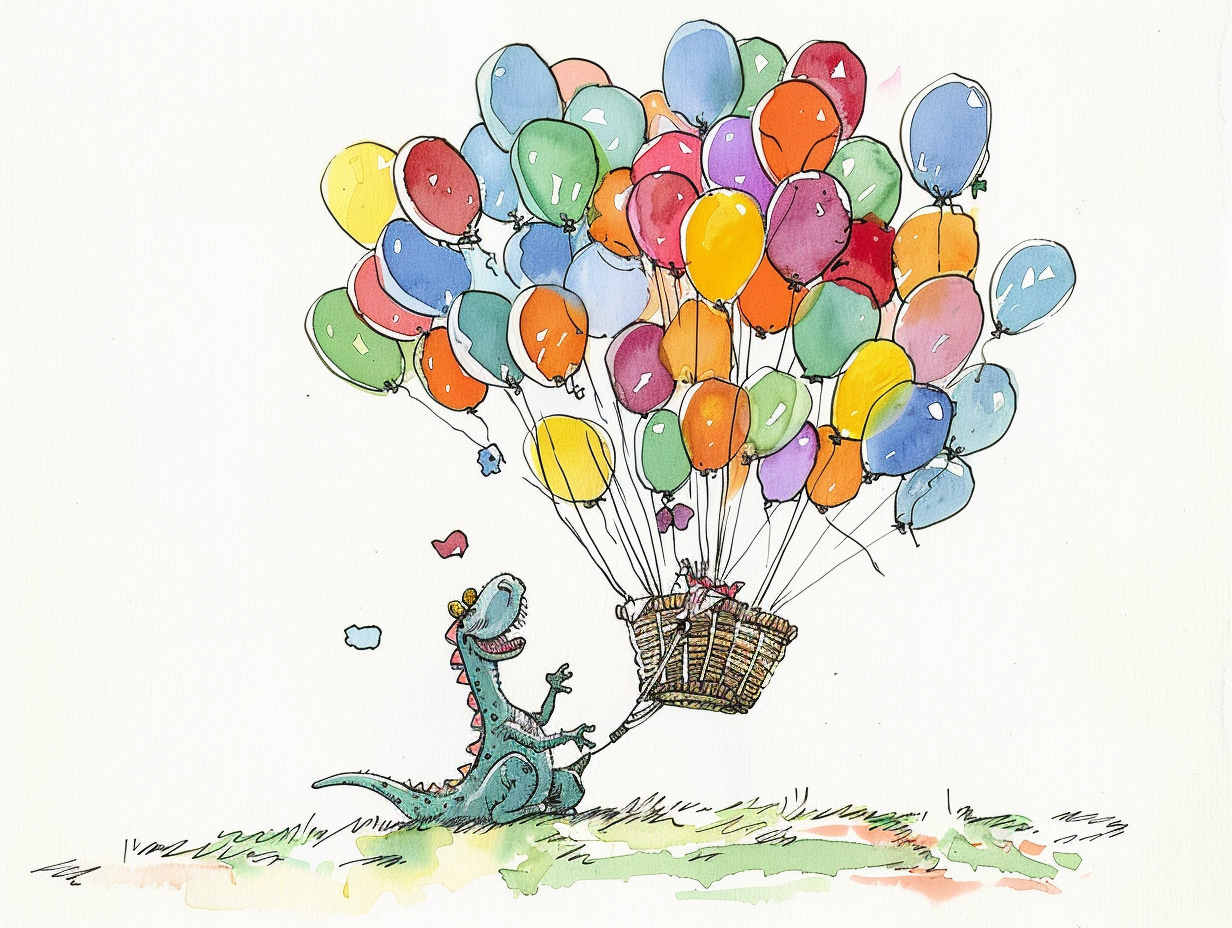
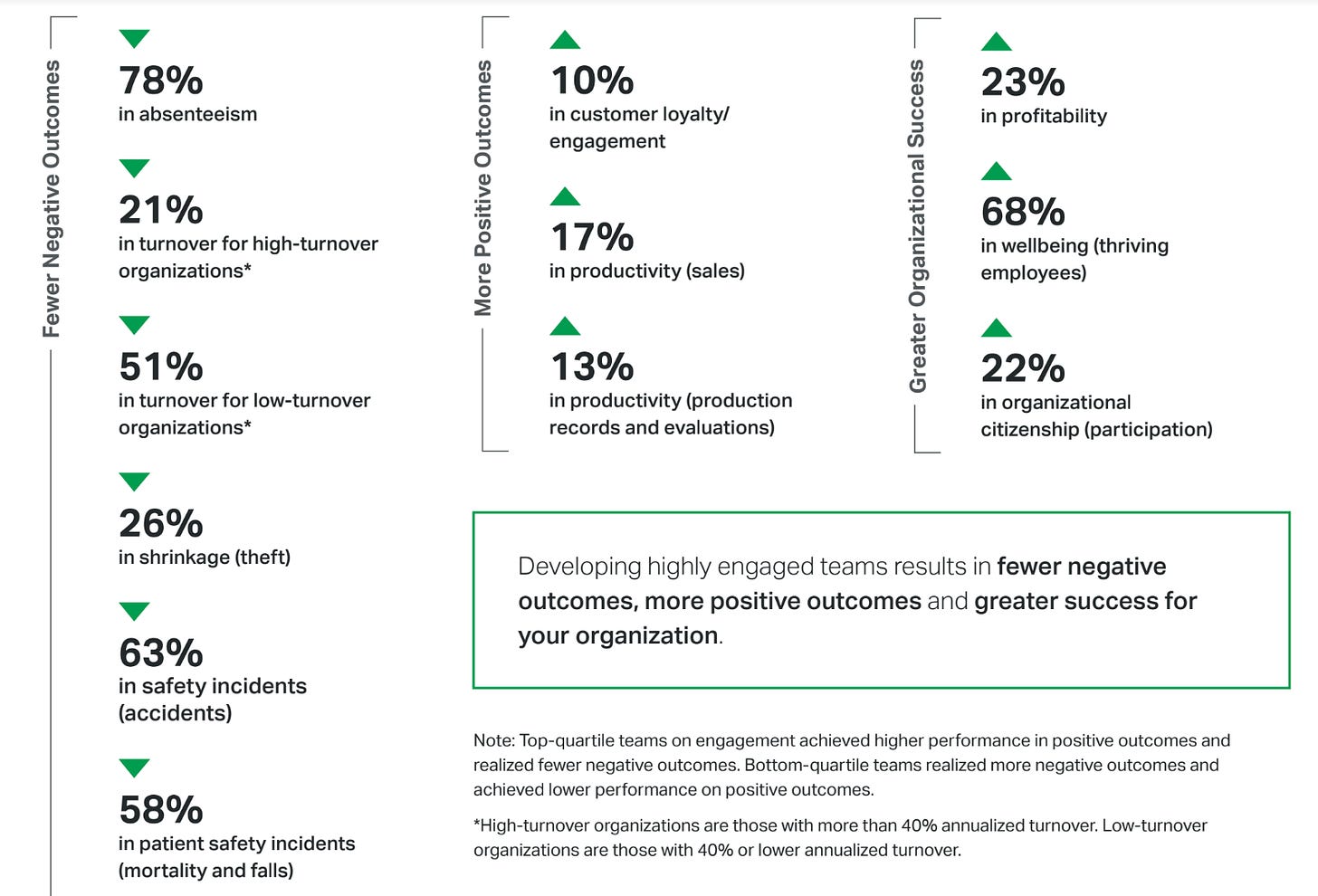
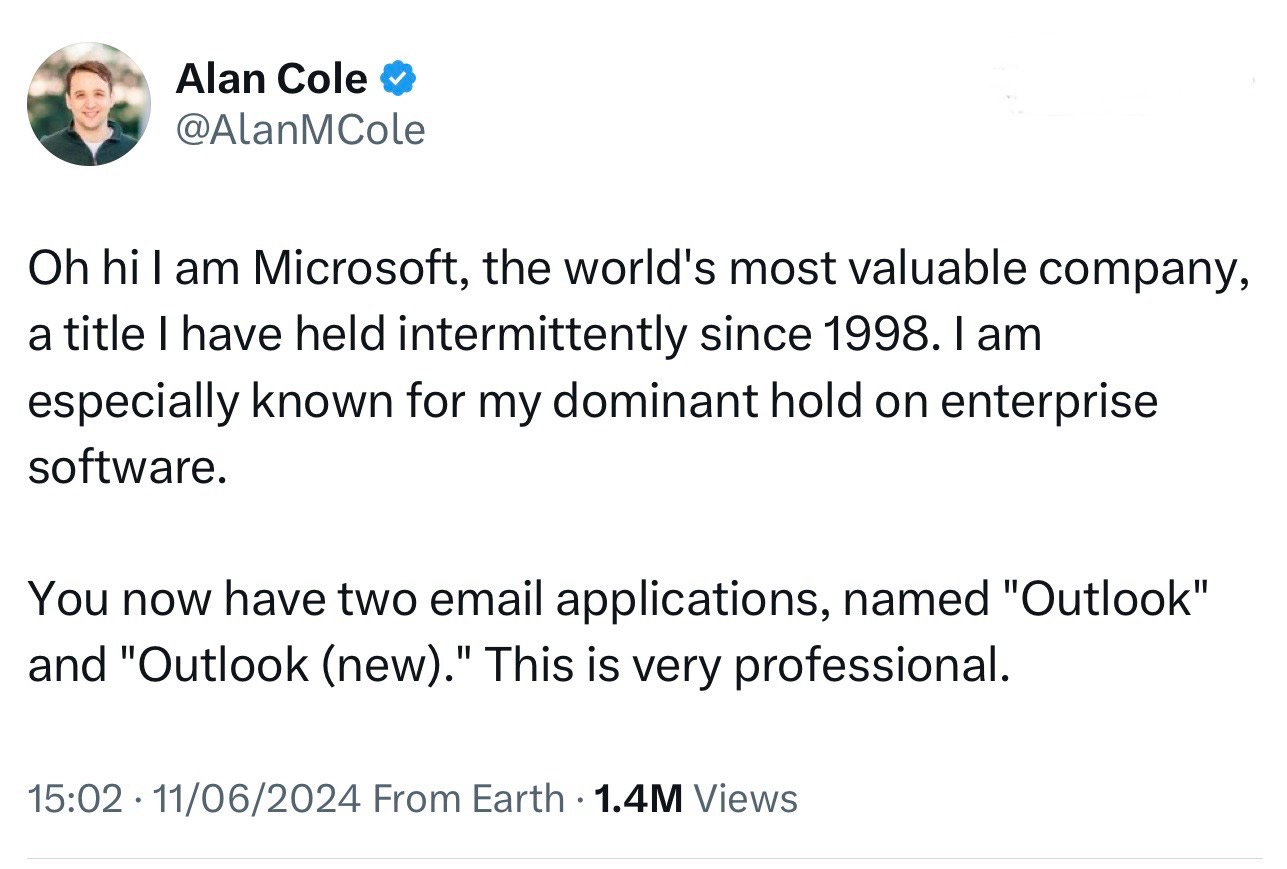


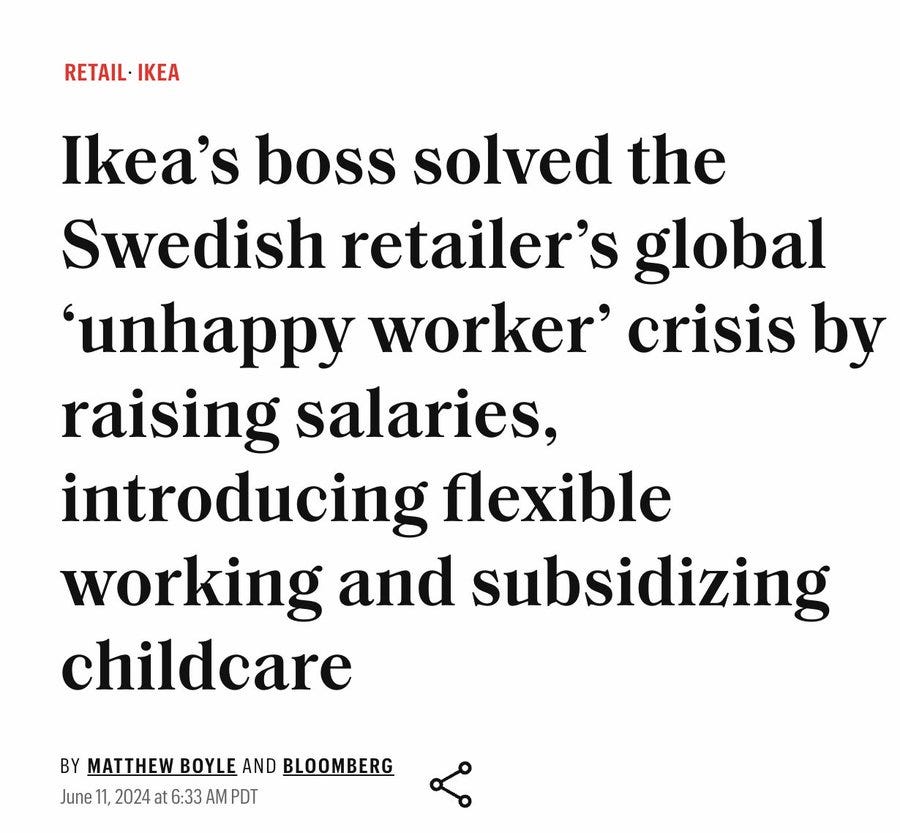
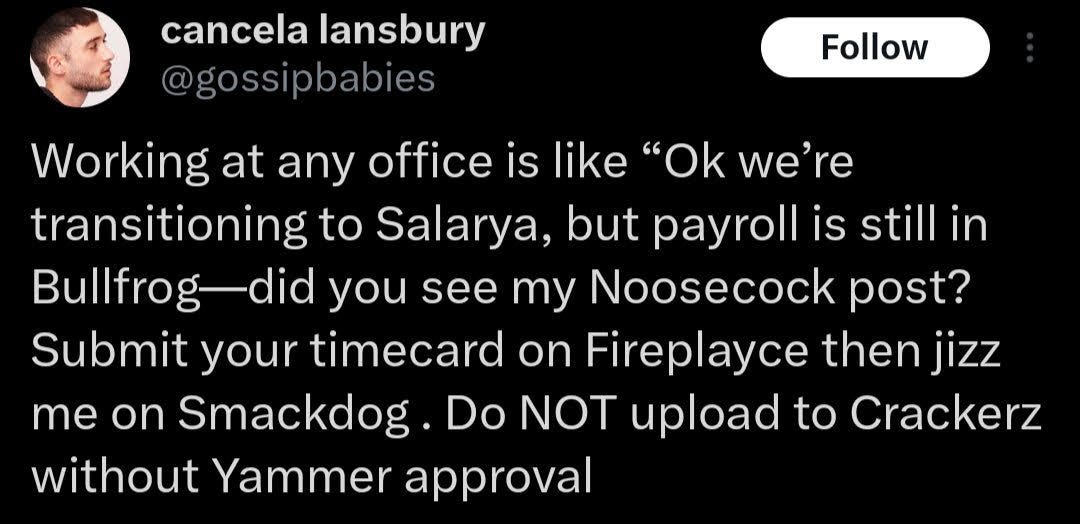
I wonder what happens on Bueller when the meeting organiser asks you a question because it looks like your paying attention
Loved this post! Made me chuckle several times. What a crazy work world we find ourselves in. Thanks for highlighting some important issues too.